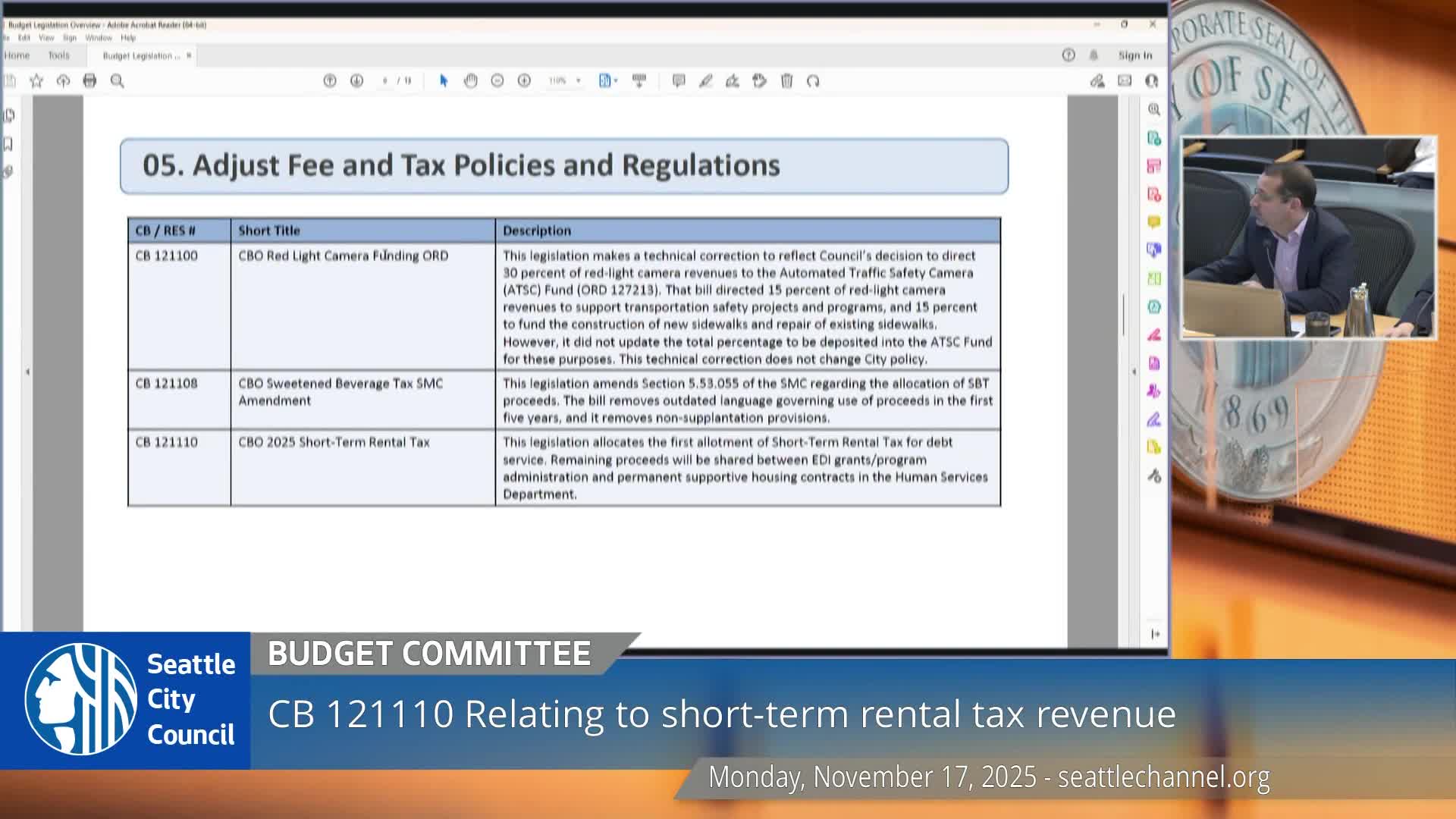Council clears short‑term rental tax allocation change, directing proceeds first to debt service
Get AI-powered insights, summaries, and transcripts
Subscribe
Summary
The Select Budget Committee recommended an ordinance that removes fixed dollar allocations from the short‑term rental tax code and instead directs proceeds first to annual debt service, then to equitable development grants and permanent supportive housing; 2026 projections show roughly $12–13 million in revenue.
The committee forwarded an ordinance to full council on Nov. 17 that updates the short‑term rental tax allocation. The change removes prescriptive dollar amounts in the existing 2019 ordinance and establishes the spending order: first to annual debt service, then to Office of Planning & Community Development (OPCD) for equitable development initiative (EDI) grants, and to the Human Services Department (HSD) for permanent supportive housing contracts.
Ben Noble of Council central staff told the committee that the original ordinance included fixed dollar allocations tied to prior debt and program needs. “The new allocation doesn't set those dollar amounts, but just sets the broad categories and says the budget will show what allocations are appropriate for any given year,” Noble said.
Central staff provided projected 2026 figures: approximately $12–13 million in short‑term rental tax revenue, with roughly $6.75–7 million earmarked for EDI grants, about $4 million for permanent supportive housing, and roughly $2 million for debt service. Under the new ordinance, debt service will be the first call on proceeds and any remainder will be allocated among the other authorized uses via the annual budget.
Council president Nelson and others asked about potential trade‑offs if debt service consumes most proceeds; staff responded that the ordinance preserves those spending categories but leaves allocation amounts to the annual budget process.
The committee's recommendation sends the ordinance to the Nov. 21 City Council meeting for final action.
